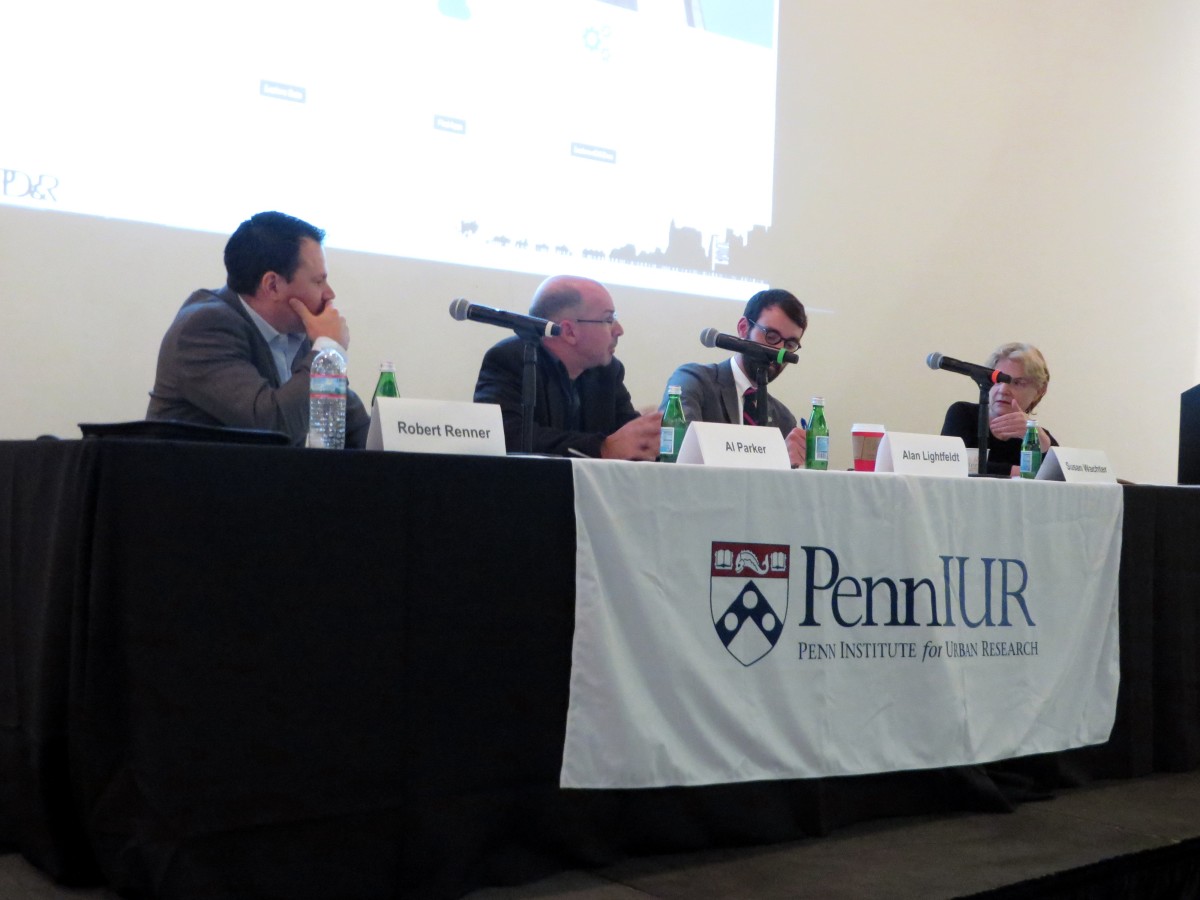Visualization of geographic data can lead to better housing policy decisions in U.S. cities, according to a Wednesday panel at the University of Pennsylvania.
The event highlighted innovative uses of Geographic Information Systems (GIS) for real estate and was held as part of National GIS Day.
Spatial analysis using GIS data helps “communities make better, more targeted [and] informed decisions,” said Robert Renner, social science analyst at the U.S. Department of Housing and Urban Development (HUD).
HUD is currently analyzing housing data to assess access to opportunity by different demographics, Renner said. This supports the Fair Housing Act, a law which protects people from discrimination when they are renting, buying, or securing financing for any housing. The law specifically covers discrimination due to race, color, national origin, religion, sex, disability and the presence of children.
Renner admitted that the subject can be a highly charged political issue.
“For me, the crux of it is providing real base-line data for people to have an honest conversation and to set some goals for how to address these issues in our community going forward,” he said.
Al Parker, research associate at The Reinvestment Fund, agreed that cities “need to be smart about how they’re allocating their resources.”
To that end, Parker’s group has worked with many local governments to analyze data about communities and create maps to identify areas where public investment is most critical, he said.

Left to right: HUD’s Robert Renner, The Reinvestment Fund’s Al Parker and Zillow’s Alan Lightfeldt. (Not pictured: Penn’s Susan Wachter.) (Photo by Adam Bender)
In the early 2000s, The Reinvestment Fund worked with Philadelphia Mayor John Street on a strategy to eliminate urban blight. The maps built from that process were effective in getting the attention of policymakers and provided data-based evidence to support funding initiatives, said Parker.
A growing tech company in the real estate space is also gathering data that it hopes will be useful to policymakers.
While Zillow’s primary data focus is to help consumers make informed real estate decisions, the data can also be used to reveal the affordability of housing across a city, said Alan Lightfeldt, data scientist for StreetEasy, part of the Zillow group.
For example, Zillow data in New York City shows a great divide between the price of renting and the city’s minimum wage of $8.75 an hour, Lightfeldt said.
Assuming a 40-hours-weekly schedule, Zillow estimates that a minimum hourly wage of $39 is required to afford renting in New York City, he said. At the current minimum wage, there is no neighborhood in the city where renting is affordable, he said. The city is effectively shutting out 30 percent of its workforce, largely in the services sector, he said.
All three panelists said they are looking to hire people with technical data skills for their teams.
HUD needs people with spatial reasoning abilities, basic data manipulation skills and familiarity with large public datasets, said Renner.
Parker said it’s difficult to find people with SQL database and coding skills. Lightfeldt agreed that hard technical skills are desired, but added that Zillow also wants people who can quickly adapt to using new technologies.
The panel was hosted by the Penn Institute for Urban Research, and co-sponsored by the Master of Urban Spatial Analytics program, the Cartographic Modeling Lab, the Wharton GIS Lab, PennDesign and Penn Engineering.
Join the conversation!
Find news, events, jobs and people who share your interests on Technical.ly's open community Slack

Philly daily roundup: Earth Day glossary; Gen AI's energy cost; Biotech incubator in Horsham

Philly daily roundup: Women's health startup wins pitch; $204M for internet access; 'GamingWalls' for sports venues

Philly daily roundup: East Market coworking; Temple's $2.5M engineering donation; WITS spring summit

